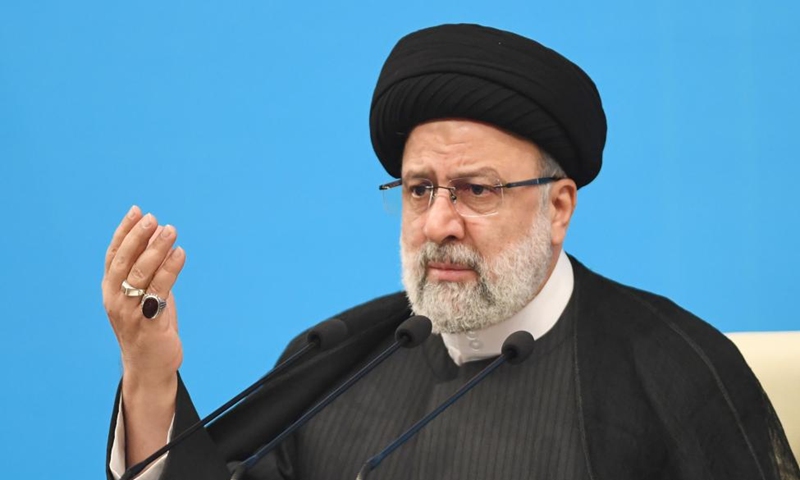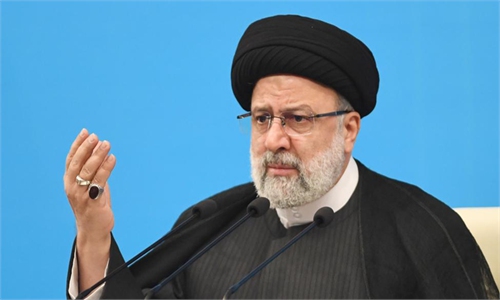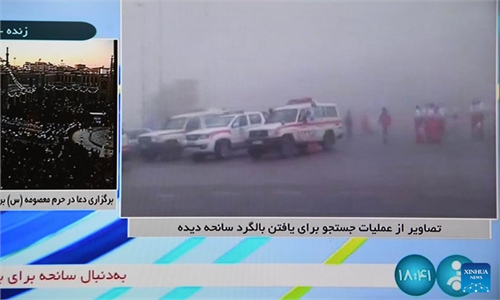What impacts are brought by Iranian President Raisi's death in helicopter crash?

This file photo taken on Aug. 29, 2023 shows Iran's President Ebrahim Raisi in Tehran, Iran. Iran's President Ebrahim Raisi and Iran's Foreign Minister died in a helicopter accident, according to local media. Photo: Xinhua
The death of Iranian President Ebrahim Raisi was confirmed by Iran's state media. President Raisi, Foreign Minister Hossein Amirabdollahian and all the other passengers were killed in the helicopter crash on Sunday. The Iranian government cabinet has held an urgent meeting to announce the funeral arrangements for President Raisi and other officials.Raisi, 63, assumed the presidency of Iran in 2021. He has high political reputation in the country and is widely considered as a potential successor to the 85-year-old Iranian Supreme Leader Ayatollah Ali Khamenei. Western media has suggested that Raisi's death may lead to chaos in Iran's ruling class, potentially sparking a power struggle for Khamenei's successor. It claimed that this turmoil will further affect the country's political future for decades to come.
Religious leader Khamenei holds the highest authority in Iran. It is not ruled out that Raisi's death will inspire some opposition forces in Iran, but the influence of the Iranian opposition has always been limited.
Western officials showed a cautious stance. US Senate Majority Leader Chuck Schumer said there is no evidence of "foul play" after speaking with intelligence authorities. However, the West is generally perceived as being glad to see Raisi disappear from Iranian politics, because Iran is believed to have not only supported Hamas but also funded militias in Lebanon, Iraq and Yemen that collectively oppose the US and its regional proxies in the Middle East. Before Raisi's death was confirmed, US Senator Rick Scott openly condemned Raisi on social media, saying that if he is dead, "the world would be a safer and better place." Western media outlets called Raisi as "ultraconservative" and accused him of being responsible for "Iran's crackdown on uprising and executions of political dissidents."
Iran continues to lose political and military leaders in abnormal circumstances, with some Western media outlets gloating about its misfortune. Iran has been confronting the US for decades, which has not been easy, and its established line of opposing the US' Middle East policy will not be easily shaken. Also, pro-Western forces in Iran are unlikely to turn the tide in the short term.
The author is a Chinese media professional. opinion@globaltimes.com.cn




